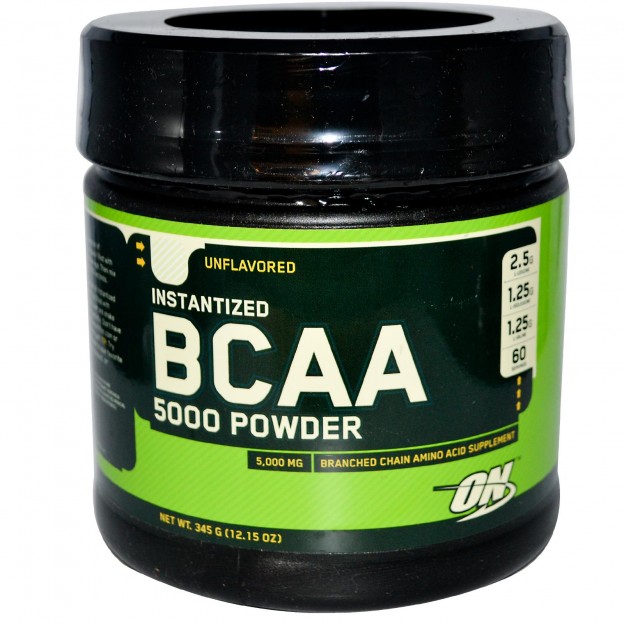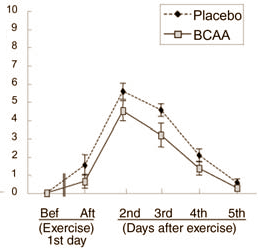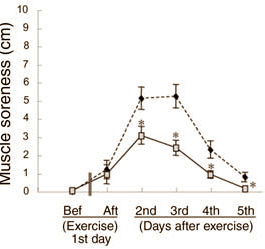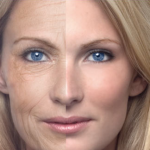By Admin – Steroidal.com
In recent years pre-workout nutrition/supplementation, intra-workout supplementation and post training nutrition/supplementation, have been shown to be of greater importance when wanting to build muscle and cut body fat. A wide range of new supplements has hit the shops, such as those improving blood flow and vasodilation. Other product matrixes combine the need for amino acids to be ingested prior, during and after training to help strength gains, muscle mass accrual and accelerate fat loss.
Strength athletes who ingest 5g of BCAAs prior to training will have less muscle soreness or DOMs (delayed onset muscle soreness), according to The Nagoya Institute of Technology in Japan.
The study was carried out using 30 men and women ages 21 to 24 years old. The researchers gave the subjects a high carb breakfast and just before the exercising commenced, were given 150ml of water with 5g BCAA’s dissolved in it. Added to the mixture was 1g of green tea powder. The ratio of isoleucine, leucine and valine was 1 : 2.3 : 1.2.
The training session consisted of seven sets of squats. The men and women, who otherwise did not take regular exercise, had to do 20 reps in each set. This was carried out over five days and after training all subjects had to state how sore their muscles were.
The first figure shows the men’s results, showing those who supplemented with 5g BCAAs experienced less muscle soreness. The second figure shows the women’s outcome, which is the same as the men’s but more pronounced. According to the study, the women’s results were more dramatic due to them weighing less per kg of bodyweight increasing the overall concentration of BCAAs. The women’s BCAAs dosage per kg was 92mg, compared to the mens, which was 77mg per kg.
The Japanese researchers did not investigate exactly how the BCAAs caused less muscle soreness in the subjects, but speculate, “”BCAA may attenuate exercise-induced protein breakdown, while leucine may stimulate muscle protein synthesis”, the researchers write. “If the finding is substantiated, the results could support the usefulness of BCAA in muscle recovery from exercise.”
This study was conducted in 2006 and was a preliminary study for the latter 2010 study, which did investigate how the BCAAs helped reduce DOMs. The latter more complete paper was published in June 2010. [Int J Sport Nutr Exerc Metab. 2010 Jun;20(3):236-44.] In that paper the researchers explain that BCAA supplementation reduces the post training increase of the muscle protein myoglobin and elastase in the blood. Myoglobin is released when muscle cells are damaged post exercise; elastase is an enzyme that immune cells use to clear up dead cells. Which explains why BCAA supplementation reduces muscle soreness caused by training and why BCAAs can aid in reducing it.
It should also be noted that the study was funded by the Japanese government. What we also know is two of the researchers worked for Ajinomoto, which is a BCAA manufacturer specialising in instantized amino acids.
Source:
J Nutr. 2006 Feb;136(2):529S-532S.









